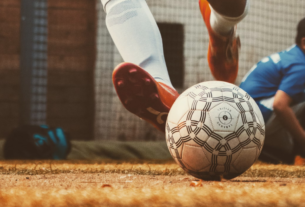Adaptive sports represent a transformative and inclusive approach to athletic competition, offering individuals with disabilities opportunities to participate, excel, and achieve greatness in sports. These sports are specially designed or modified to accommodate athletes with physical, cognitive, or sensory impairments, enabling them to showcase their abilities, perseverance, and competitive spirit on a global stage.
At the heart of adaptive sports is the belief that disability does not diminish the desire for athletic achievement or the potential for extraordinary accomplishments. Instead, adaptive sports empower athletes to overcome physical challenges, break down societal barriers, and redefine perceptions of disability through courage, determination, and skill.
The history of adaptive sports dates back to the aftermath of World War II, when injured veterans sought opportunities to engage in physical activities as part of their rehabilitation and recovery. Driven by the need to regain mobility, independence, and a sense of purpose, veterans pioneered adaptive sports programs such as wheelchair basketball, wheelchair racing, and swimming, laying the foundation for organized adaptive sports competitions and events.
Over the decades, adaptive sports have expanded to encompass a wide range of disciplines and categories that cater to diverse abilities and interests. Wheelchair tennis, para cycling, adaptive skiing, and seated volleyball are among the many adaptive sports that offer athletes the chance to compete at recreational, national, and international levels, fostering camaraderie, sportsmanship, and personal growth.
The Paralympic Games, established in 1960, represent the pinnacle of adaptive sports excellence, showcasing elite athletes with disabilities from around the world competing in a variety of sports disciplines. The Paralympics celebrate the resilience, determination, and athletic prowess of participants, challenging stereotypes and promoting inclusivity and accessibility in sports.
Adaptive sports encompass a spectrum of adaptive techniques, equipment modifications, and classification systems that ensure fair competition based on athletes’ impairments and functional abilities. Classification systems categorize athletes into groups based on factors such as mobility, strength, and coordination, allowing for equitable competition and fostering a level playing field for all participants.
Beyond the competitive arena, adaptive sports play a vital role in promoting physical health, psychological well-being, and social inclusion among individuals with disabilities. Participation in adaptive sports has been shown to improve cardiovascular fitness, muscle strength, and flexibility, enhancing overall physical health and reducing the risk of secondary health complications associated with sedentary lifestyles.
Adaptive sports also provide opportunities for personal development, leadership, and empowerment, empowering athletes to set and achieve goals, build resilience, and overcome adversity both on and off the field. The camaraderie and support network within the adaptive sports community foster a sense of belonging and mutual encouragement, promoting social integration and positive self-esteem among participants.
In addition to individual achievements, adaptive sports highlight the importance of accessibility and inclusive design in sports facilities, equipment, and programs. Advocacy efforts by athletes, coaches, and organizations seek to improve access to adaptive sports opportunities, adaptive equipment, and training resources, ensuring that individuals with disabilities can fully participate and thrive in sports activities.
Media coverage and public awareness of adaptive sports have grown significantly in recent years, contributing to greater visibility, recognition, and appreciation of athletes’ accomplishments. Documentaries, feature stories, and televised broadcasts showcase the athleticism, determination, and inspiring journeys of adaptive sports athletes, raising awareness and challenging misconceptions about disability and athletic ability.
The impact of adaptive sports extends beyond the individual athlete to inspire and educate audiences about resilience, diversity, and the power of determination in overcoming challenges. Adaptive sports events and exhibitions serve as platforms for advocacy, education, and community engagement, promoting inclusion, understanding, and support for individuals with disabilities in sports and society.
Looking ahead, the future of adaptive sports holds promise for continued growth, innovation, and expanded opportunities for athletes of all abilities. Advances in adaptive equipment, technology, and sports science will enhance performance, safety, and accessibility, allowing athletes to push the boundaries of athletic achievement and redefine what is possible in adaptive sports.
In conclusion, adaptive sports represent a celebration of human potential, resilience, and determination, empowering individuals with disabilities to pursue their athletic dreams, achieve personal excellence, and inspire others through their extraordinary accomplishments. As adaptive sports continue to evolve and gain recognition worldwide, they serve as a powerful reminder of the transformative impact of sports in promoting inclusivity, diversity, and equality for athletes of all abilities.



